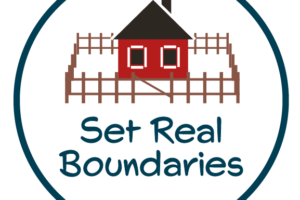
How I fell in love with Crocs + what it has to do with organizing and productivity
Crocs. Love them or hate them?
I’m not talking about the reptiles. I’m talking about the shoes.
I’d been fairly neutral about them. Until recently, I’d only owned one pair. It was a flip-flop style. I’d gotten them for the beach. However, while they were comfortable in the store, they were uncomfortable once I left the store. They went straight into the donate pile.
However, an article on The Points Guy website about Crocs peaked my interest. The idea of wearing such comfortable shoes on a plane was fabulous. The fact that people could confidently wear them rock climbing was fascinating.
So I decided to take a chance and buy the Crocs Classic All-Terrain Clogs for my trip to Iceland. I figured it was a low-risk way to experiment with shoes that could be wonderful or might prove to be awful. I decided to purchase a black pair with a royal blue adventure strap because they were $15 cheaper than the all-black pair. I wore them around the house a lot, both with and without socks. I also made sure that the other pair of shoes I was packing were comfortable ones that I could wear for long periods of time, in case the Crocs didn’t work out.
I’m happy to report that my experiment was a success! I loved the Crocs. They were comfortable and durable. I wore them on a variety of surfaces, including rocky and wet. I appreciated being able to adjust the adventure strap (with Velcro at both ends!) when I needed to use it. My Crocs will definitely be packed on future trips!
Now, I’m sure you’re wondering what Crocs have to do with organizing or productivity.
It’s not about the Crocs, per se, it’s about experimenting with something new.
When encountering a life transition, especially a health-based one, sometimes the only way to reclaim your life is to try something new. This may be a container, app, new phrase, different routine, etc. It’s important to remember that this is an experiment, which means this may or may not be something you permanently embrace.
Here are three examples.
Example 1. You’ve managed your ADHD for years with good self-care. All of the sudden you notice that the flow of your day isn’t going as smoothly as it used to and tasks are falling through the cracks.
As you think about what has changed in your life, you realize that two life transitions have occurred: your youngest child recently moved out and you decided to work part-time instead of full-time. As a result, some of the external structure of your day has gone away.
There are several experiments you could try – one at a time, though!
Experiment #1 Create a schedule and use alarms to keep you on track.
Experiment #2 Ask a friend to be an accountability partner. They ask for status updates on your task list.
Experiment #3 Work with a qualified coach and discover new strategies to help you establish a schedule and task-completion system that works for you.
Example 2. An upcoming surgery requires you to have specific medical equipment as well as a modified wardrobe. You’re concerned about where to put these items so you can easily access them during your recovery.
First, it’s best to acquire these items as soon as you know you’re having the surgery. I know sometimes that’s not possible if the procedure is due to an accident. Also, it’s awesome if you can borrow medical equipment rather than buy it.
Experiment #1 Relocate items currently in the spaces needed for the medical equipment and clothing. Then place the necessary items into the empty spots.
Experiment #2 Create temporary locations for the new supplies, without removing items currently in the space.

Example 3. Your parent’s health is declining and they require additional support.
Experiment #1 Hire someone to help them out at the times they most need it.
Experiment #2 Say “no” to some activities so you can provide the extra support.
So how do you know when you need to conduct an experiment?
- Critical new responsibilities or appointments are added to your schedule.
- Daily routines don’t run smoothly.
- You need to organize lots of new incoming information.
- Your schedule feels totally out of control.
- New medical supplies need to stored in an easily accessible place.
You may be thinking, “When my life implodes, how do I have time to run experiments?”
Modifying what’s currently not working is the only way to make it start working again. And I’m not talking about making huge changes, just little ones until you find something that makes your life better.
How do you go about experimenting?
- Identify specifically what’s not working. Is it related to where an item is located or the container a supply is in? Do you need more time in your morning or evening routine to account for new activities? Are you missing some necessary supplies? Do you need help with a chore and no one is available?
- Identify possible solutions.
- Choose which option to experiment with first.
- Decide how long to try it before changing to another solution. It needs to be longer than a day. However, the length of time depends on the nature of the life transition. Recovery after surgery is usually more temporary, and so three-to-five days might be a good length of time. A situation that isn’t likely to change for months or years, if ever, means that experimenting for two-to-four weeks is in your best interest. After all, it takes an average of 66 days to form a new habit, so you need to experiment long enough to know whether or not it is a viable option.
- Set up the stages of the experiment. From Example 1, if you’re going to try creating a schedule and using alarms, you could draft the schedule, and then start by getting out of bed (or going to sleep) consistently according to your timetable. Then you refine your morning routine. Next, you work to solidify the first block of time for task completion.
Are you dealing with a life-disrupting situation? You don’t have to go through it alone! I partner with ambitious people in the midst of a life-altering circumstance to achieve calm and control so they can live their life again. Are you ready to feel focused and on top of things? Great! Let’s schedule a no-obligation exploratory call to see how I can help you make that happen.



